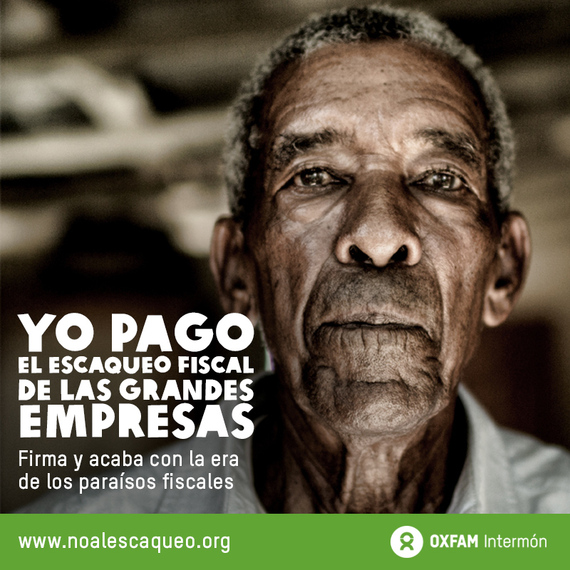
Greed knows no bounds, and it defies all expectations. It seems only yesterday when we denounced the fact that 85 affluent individuals shared a combined wealth equivalent to that shared by 3.5 billion of the world's population. Today, this number has dropped to 62 individuals, and their wealth is comparable to that of the poorest half of the world's population.
Wealth is concentrated in very few hands, and they hardly suffer the consequences of economic and social crises or climate change. They have ways and means to protect themselves-- they have co-opted power so that the rules are made and enforced in their favor.
"World leaders and figures of note, such as the Pope, have insisted that inequality keeps millions of people from escaping poverty and breaks down social cohesion."
And they're efficient. They managed to make it so that 50 percent of the wealth created since 2010 would end up in their elitist hands. Conversely, 50 percent of the world's poorest population, those 3.6 billion, enjoyed only 1 percent of the wealth created in the past five years. They remain in poverty.
We've been asked time and time again why we pledge to fight inequality when our mission is to eradicate poverty. The answer has not only come from social organizations; world leaders and figures of note, such as the Pope, have insisted that inequality keeps millions of people from escaping poverty and breaks down social cohesion.
Leo, a Dominican Republic farmer, pays his taxes but does not have running water. Photo:Pablo Tosco/Oxfam Intermón
In the past 25 years, the average income of the poorest 10 percent of the world's population has risen by $3 dollars a year.
The new report we just published shows that if inequality had not increased in the last 20 years, another 200 million people would have escaped poverty. And if economic growth (and the effects of the crisis) had been more equal, 700 million people would have escaped extreme poverty. Poverty would have been eradicated.
"We need the discourse of fighting inequality to be replaced by action by global politicians."
The solution is a more just tax system; income tax should ensure that those who have more money pay more in taxes. Currently, this is not the case. The fact that tax havens, where billions of euros are hidden, still exist is the best reflection of how this system is designed to serve the 1 percent. These tax havens need to be wiped out.
Social expenditure drains resources. Budget cuts are not specific to Spain; across the world, tax competition weakens social policies. Tax havens only benefit those who can pay assessors and create frameworks that allow their earnings to be hidden in pirate banks.
Aside from taxes, Oxfam highlights income inequality as another key factor. The difference between men's and women's earnings and the wage gaps between classes, continued to grow before, during, and in the aftermath of the crisis. In a world where unemployment is growing and threatens to become endemic, the fact that the salaries of executives amount to hundreds of times the average in their companies is irresponsible.
All of this has clear implications on the sustainability of the planet. Oxfam has calculated that the carbon footprint of the richest 1 percent can reach 175 times that of the 10 percent poorest of the population. Water, energy, clean air, land, and food are also unequally distributed.
The planet cannot endure more and nor can its people. We can't wait.
We need the discourse of fighting inequality to be replaced by action by global politicians, who discuss the issue at length until it's time to make and apply laws.
This post was originally published on HuffPost Spain. It has been translated into English and edited for clarity.

